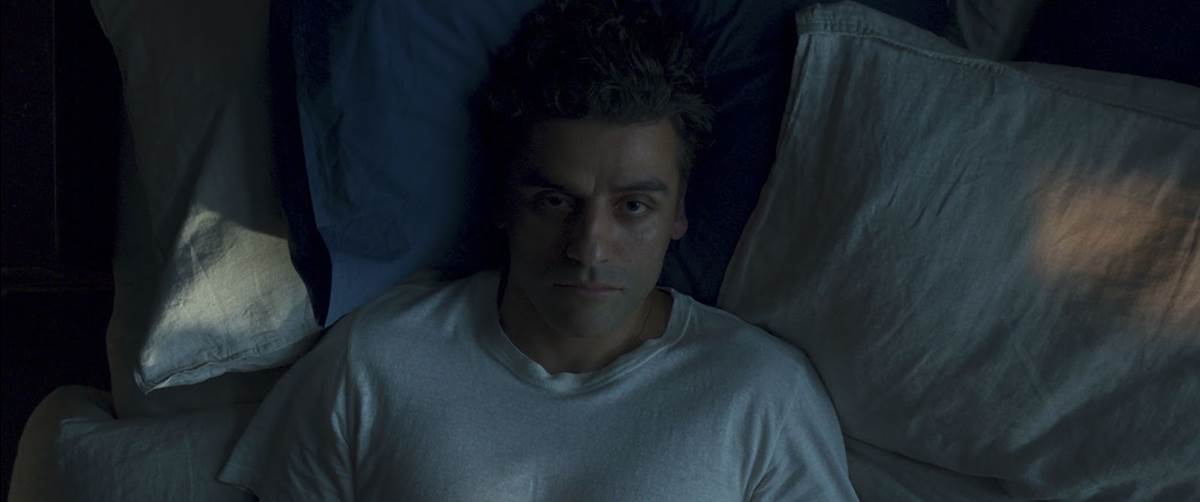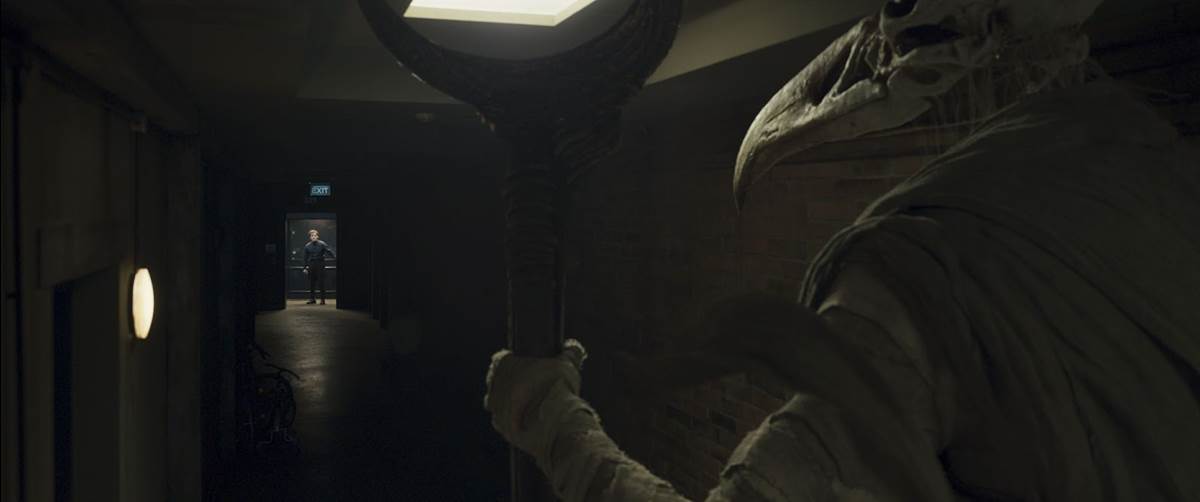Your mind may still be blown from the latest episode of Marvel’s Moon Knight. So while we wait for the next installment, we had the chance to talk to the series’ composer Hesham Nazih. While new to the Marvel Cinematic Universe, he is known in Egypt for interweaving authentic melodies with contemporary music for films such as The Blue Elephant 1-2 and Sons of Rizk 1-2. This is his first English language project, and he is on a big one. We discussed his process and what it is like to work on such a huge franchise.
Laughing Place: Can you talk a little bit about your musical journey to get to the point where you're composing for a Marvel Cinematic Universe, Disney+ series?
Hesham Nazih: I was doing music for films and TV series and shows in the past 20, maybe 25 years ago in Cairo Egypt, and I started the usual way. I started as a musician in bands and stuff like that. And then my first feature was in 1997. This is where I started to write for the first feature, commercial feature film, and then ever since I've never stopped writing music for films. And how I got this job to Marvel… I believe I was suggested and recommended by Mohamed Diab, the director to the studio, and then they sent me to send them my demo reel. And then 10 days later, they wrote back to me and then they said, "Okay, we want to meet you." And they explained the thing, the project and voila, here we go. This is how it happened.
Laughing Place: Did that change your process at all in terms of just the scope?
Hesham Nazih: The whole thing is new to me. This genre is not everywhere, the Marvel stories, it's not everywhere. It's very unique to Marvel. And I find myself in a very unusual musical situation, like where I'm wanted to score a scene where our hero is turning into a superhero, which is not a normal situation, you know? And then he fights like a superhero and he flies and stuff like that.
It's normal for me as an audience, but as a composer I've never written music for such situations before. So yes, I needed to broaden my musical scope a lot. I needed to study how these things go because you sometimes while watching overlook tiny details, tiny technical details. In a movie theater when I'm watching adventure or anything, for instance, you just enjoy watching. You don't pay attention to those tiny details. How the composers did that, how the editors did that, but was given the chance to do such a thing, you find yourself where you need to do a little study and to experiment a lot because it's not easy. It's enjoyable to do the max, but it's testing, in a way, in a good way.
Laughing Place: And one of the great things about Moon Knight is it balances a superhero score with a more unique sound that we don't have from other characters who don't have the sort of Egyptian heritage of Moon Knight. How did you balance the sort of wanting it to sound like a Marvel film, but at the same time making it unique and giving it your own sound and unique for this own character?
Hesham Nazih: That's the thing in particular that took the most of the time. Thinking, thinking, and thinking and thinking, how do I melt all these elements in one part? The elements that you mentioned, the origin of the power that he gets from control from an Ancient Egyptian God, and the nature of the character himself, Marc Spector, an American Mercenary, and even Steven Grant who lives in London and in a very simple, innocent life and innocent character himself. So I did a lot of experiments, musical experiments on how to melt all these things all together. And I needed to think of how should I put the anger and the loads upon Mark's shoulders and the innocence of Steven and the self righteous anger of Khonshu and the sheer power of Khonshu into one musical theme. I cannot explain that in words, it just happened. This triangle of elements in my head always while thinking. So I think it kept growing them for days and weeks until I came up with the main theme for Moon Knight.
Laughing Place: Moon Knight is a guy that has a lot of things going on in his head, and you mentioned that we know of Marc and Steven and Khonshu, how did you get to understand what made those characters tick for a character that might not be as prevalent as other characters.
Hesham Nazih: I knew about the characters a few weeks before meeting everybody before meeting Diab. I traveled to meet them and talk about the whole project. So I got the chance to do lots of reading, all the information I found online about the history and the background of the character and background of Khonshu himself, because Khonshu has a big history in the Egyptian, in the Egyptian conviction or ancient Egyptian myth if you'd like to put it.
So yes, it took me two to three weeks and then another couple of weeks to put the musical ideas in that musical suite. There will never be enough time to think of something. I mean, you can get the idea in like 10 seconds, but you can wait for a month for those 10 seconds to arrive. So, sometimes you get lucky. 10 seconds arrive all of a sudden. So I would say two to three weeks sketching.
Laughing Place: What do you hope people take away from the score? Maybe when they watch it a second time and they're more focused on the music, not just the what's in front of them, what do you hope people take away from your work on Moon Knight?
Hesham Nazih: Writing score for Moon Knight, it was a beautiful dream. It didn't feel real. The whole, every night, every day it felt like I'm in a dream. It was a fantastic journey full of everything and in excess full of adventure. Combats, love, everything, it has everything in it in full. I would love the audience to enjoy it just the way and as much and as the way I did while writing it. I never had enough. I never had enough of music. I mean, it's full of music, but I always can get more. I can do more, there is still more, the show still needs more and it deserves more. So yeah. I wish they enjoy it just the way I did. Still do actually.


